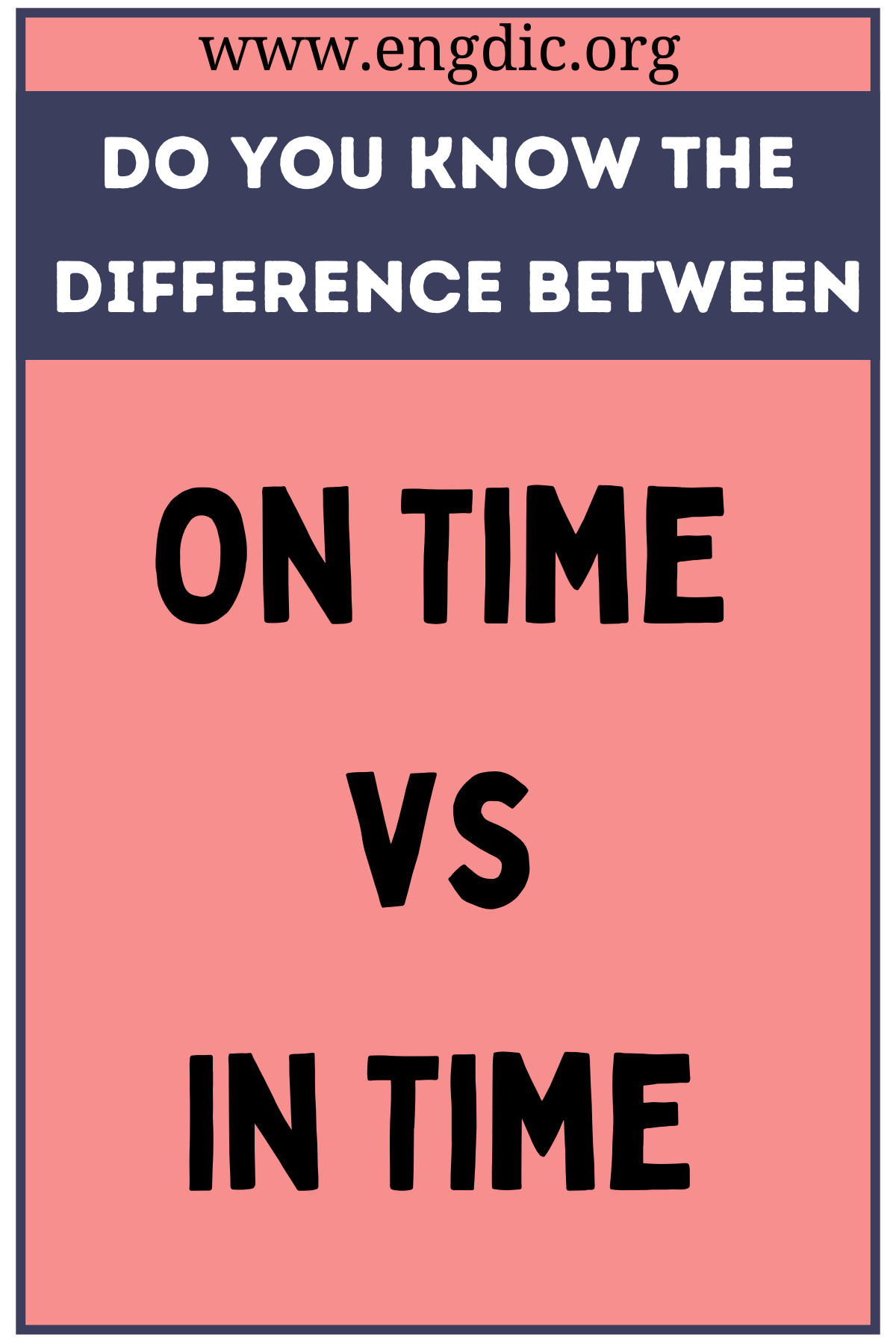“On time” means something is happening according to a scheduled time, like a bus arriving exactly at 8:00 AM. “In time” indicates something happening within a timeframe before a specific deadline or cutoff, like submitting a report right before the deadline.
While “on time” is precise, “in time” is more flexible, focusing on arriving or completing something before it’s too late.
On Time
Definition: Being punctual; occurring at the planned or expected time.
Usage:
- Punctuality: Indicates punctuality or strict adherence to a time.
Example: The train arrived on time at 9:15 AM, as scheduled. - Reliability: Implies reliability or dependability in timing.
Example: Our meetings start on time, so don’t be late.
In Time
Definition: Happening or occurring before a deadline or within an acceptable timeframe.
Usage:
- Before Deadline: Meeting a deadline or a cutoff point.
Example: The team submitted the project in time before the client meeting. - Before Something Happens: Acting or arriving just before something significant occurs.
Example: He reached the airport in time to catch the last flight.
By understanding the distinctions between “on time” and “in time,” we can improve our communication and better convey punctuality and timing nuances.







